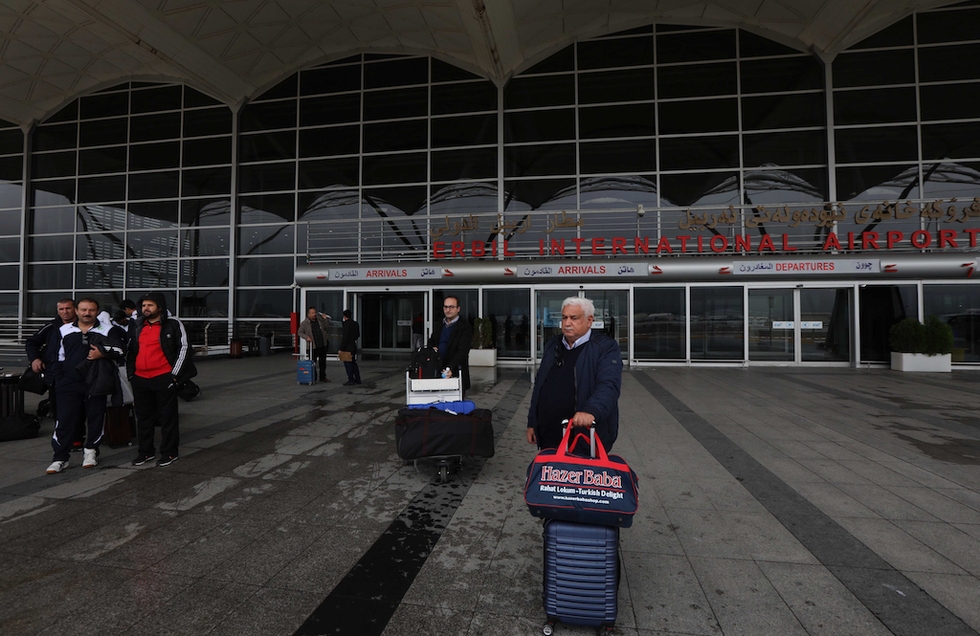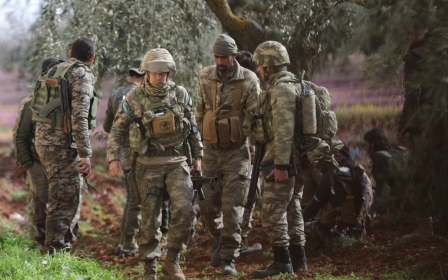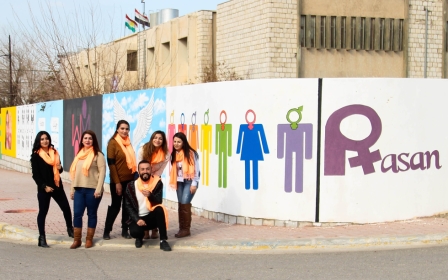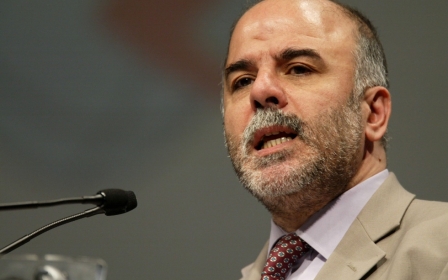Baghdad ends air blockade of international flights to Iraqi Kurdistan

Baghdad has announced the re-opening of international flights in the Kurdistan region after an almost six-month ban.
Prime Minister Haider al-Abadi said in a statement the airports of Erbil and Sulaymaniyah would again be "open to international flights" within a week.
The restrictions were originally imposed by Baghdad as a punitive measure against the Kurdistan Regional Government (KRG) after they held an independence referendum on 25 September.
The referendum results, which were overwhelmingly in favour of independence, were not recognised by Baghdad, which branded the vote "illegal".
In December the ban was extended for two months and then renewed in February for another possible three months.
The decision to lift the flight ban was made "after local Kurdish authorities accepted that central authorities retake control of the two airports," the statement said.
The formal lifting of the blockade will take place in the next few days, Abadi's spokesman Saad al-Hadithi told AFP.
"This will depend on how long it takes for employees of the central government to start working in the airports," he said.
Since the flight ban went into force, all Kurdistan-bound international flights have been rerouted to Baghdad, which also imposed entry visas to foreigners wishing to visit the Kurdish region.
The aftermath of the referendum saw federal forces also seizing disputed oil-rich regions, which had been captured by Kurdish Peshmerga following the routing of Islamic State forces in 2014.
Following the loss of oil fields in Kirkuk, the KRG has been plunged into economic and political problems.
The loss of Kirkuk also saw the resignation of President Massoud Barzani, who had been in power since the autonomous region was officially established in 2005.
Budget complaints
On 3 March, Iraq's parliament adopted an $88.5bn budget for 2018, with Kurdish lawmakers boycotting the vote to protest against a cut in the amount allocated to the KRG.
The budget is based on projected oil exports of 3.9 million barrels per day, including 250,000 bpd produced in the KRG, at a price of $46 per barrel.
It also projects $77.5bn in revenues and a deficit of $10.6bn, and allocates $20.8bn for investments.
Kurdish lawmakers boycotted the vote because it reduced Kurdistan's part of the national budget from 17 percent to 12.6 percent.
Article nine of the Iraqi constitution stipulates that Kurdistan's share of the budget must reflect the size of the population of the autonomous region.
But the text of the budget approved by parliament stated that the autonomous Kurdish government must export 250,000 bpd and hand over the money it earns from the sales to the federal authorities.
"If Kurdistan does not hand over (the money), the finance ministry will take it from its part of the budget," it said.
Middle East Eye propose une couverture et une analyse indépendantes et incomparables du Moyen-Orient, de l’Afrique du Nord et d’autres régions du monde. Pour en savoir plus sur la reprise de ce contenu et les frais qui s’appliquent, veuillez remplir ce formulaire [en anglais]. Pour en savoir plus sur MEE, cliquez ici [en anglais].




